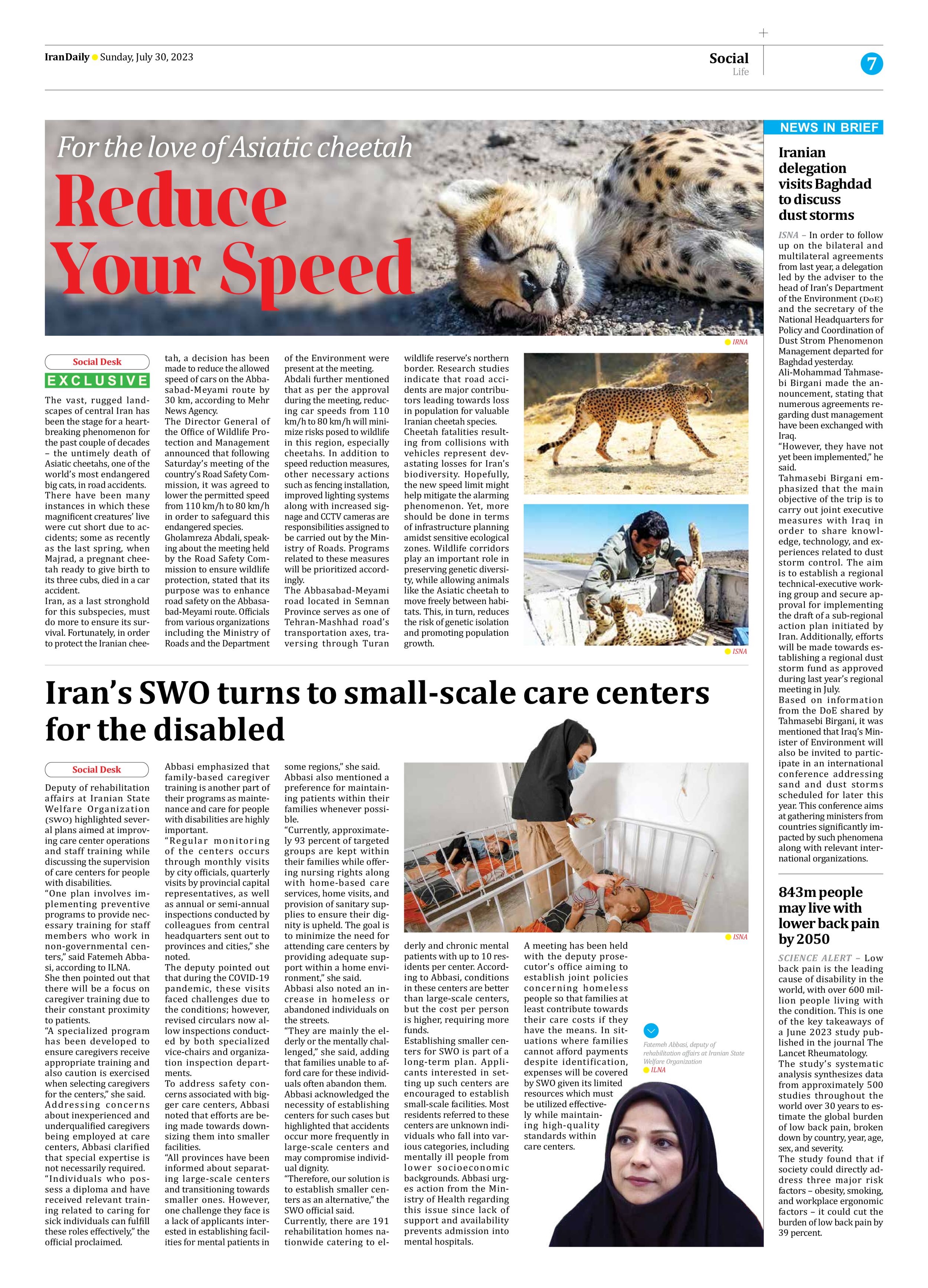
Iran’s SWO turns to small-scale care centers for the disabled
Deputy of rehabilitation affairs at Iranian State Welfare Organization (SWO) highlighted several plans aimed at improving care center operations and staff training while discussing the supervision of care centers for people with disabilities.
“One plan involves implementing preventive programs to provide necessary training for staff members who work in non-governmental centers,” said Fatemeh Abbasi, according to ILNA.
She then pointed out that there will be a focus on caregiver training due to their constant proximity to patients.
“A specialized program has been developed to ensure caregivers receive appropriate training and also caution is exercised when selecting caregivers for the centers,” she said.
Addressing concerns about inexperienced and underqualified caregivers being employed at care centers, Abbasi clarified that special expertise is not necessarily required.
“Individuals who possess a diploma and have received relevant training related to caring for sick individuals can fulfill these roles effectively,” the official proclaimed.
Abbasi emphasized that family-based caregiver training is another part of their programs as maintenance and care for people with disabilities are highly important.
“Regular monitoring of the centers occurs through monthly visits by city officials, quarterly visits by provincial capital representatives, as well as annual or semi-annual inspections conducted by colleagues from central headquarters sent out to provinces and cities,” she noted.
The deputy pointed out that during the COVID-19 pandemic, these visits faced challenges due to the conditions; however, revised circulars now allow inspections conducted by both specialized vice-chairs and organization inspection departments.
To address safety concerns associated with bigger care centers, Abbasi noted that efforts are being made towards downsizing them into smaller facilities.
“All provinces have been informed about separating large-scale centers and transitioning towards smaller ones. However, one challenge they face is a lack of applicants interested in establishing facilities for mental patients in some regions,” she said.
Abbasi also mentioned a preference for maintaining patients within their families whenever possible.
“Currently, approximately 93 percent of targeted groups are kept within their families while offering nursing rights along with home-based care services, home visits, and provision of sanitary supplies to ensure their dignity is upheld. The goal is to minimize the need for attending care centers by providing adequate support within a home environment,” she said.
Abbasi also noted an increase in homeless or abandoned individuals on the streets.
“They are mainly the elderly or the mentally challenged,” she said, adding that families unable to afford care for these individuals often abandon them.
Abbasi acknowledged the necessity of establishing centers for such cases but highlighted that accidents occur more frequently in large-scale centers and may compromise individual dignity.
“Therefore, our solution is to establish smaller centers as an alternative,” the SWO official said.
Currently, there are 191 rehabilitation homes nationwide catering to elderly and chronic mental patients with up to 10 residents per center. According to Abbasi, conditions in these centers are better than large-scale centers, but the cost per person is higher, requiring more funds.
Establishing smaller centers for SWO is part of a long-term plan. Applicants interested in setting up such centers are encouraged to establish small-scale facilities. Most residents referred to these centers are unknown individuals who fall into various categories, including mentally ill people from lower socioeconomic backgrounds. Abbasi urges action from the Ministry of Health regarding this issue since lack of support and availability prevents admission into mental hospitals.
A meeting has been held with the deputy prosecutor’s office aiming to establish joint policies concerning homeless people so that families at least contribute towards their care costs if they have the means. In situations where families cannot afford payments despite identification, expenses will be covered by SWO given its limited resources which must be utilized effectively while maintaining high-quality standards within care centers.







